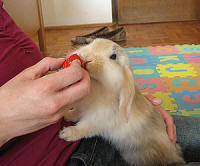|
Need Help?
|
|
Call
1-800-372-3706
to
speak to a Veterinary Behavior Technician |
|
Paws To Speak!
Member
Main Menu
|
 |
|
Help is at your
fingertips by library, email and
phone. |

|

Pet behavior profiles are an important part of determining what type of behavioral treatment is right for your Pet.
There are many factors which influence behavior profiles, these factors include: breed predisposition, training, household components, medical issues, and suboptimal vs optimal socialization.
Behavior profiles can include categories such as aggression, compulsion, destruction, elimination, fear/anxiety, ingestion, neurologic, separation, unruly, and vocalization. All these profiles can be influenced by target, motivator, and influencer. Understanding behavior profiles is only possible by thoroughly analyzing a Pet's behavioral history by a Veterinary Behavior Consultant or your attending local veterinarian (if they provide this service.)
Once appropriate behavior profiles are understood, it is necessary to assign values to each profile, such as low, average, or high, which can help explain past, current, and most likely future behaviors. This information is imperative in determining the prognosis for improvement with behavioral treatment. These values also help us to determine the course of treatment for each individual Pet. The more severe issues are most likely to be addressed before those rated as less severe.
Treatment Plan
A treatment plan based upon behavior profiles has the highest chance for success as all behavior profiles are taken into consideration when creating the plan. For example, a Pet which has a destruction behavior profile along with a separation anxiety profile is best helped by addressing the separation anxiety first which will likely cause a decrease in the destructive behavior as a result of treatment. Addressing and treating only the destructive behavior will not result in success as the underlying main profile of separation anxiety must be dealt with first.
When in doubt, always check with your attending veterinarian regarding questions about your Pet's behavior or contact 800-372-3706 to ask questions about the Pet Behavior History Analysis or treatment plans and options offered through Animal Behavior Network.
|